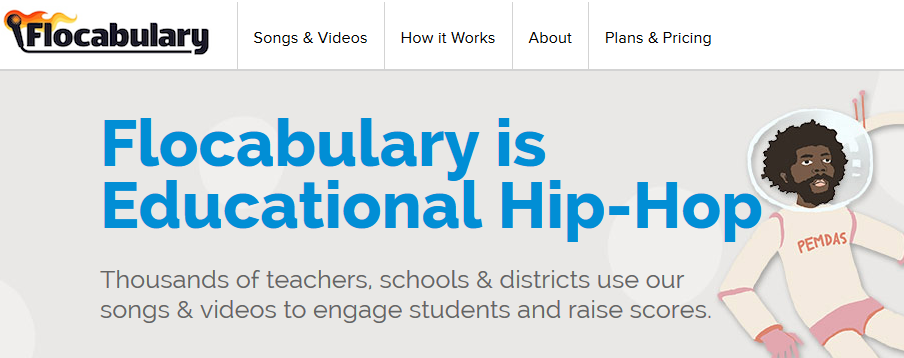Tuesday, April 29, 2014
Standards Based Grading: Redos, Retakes, and Do-Overs, Part 2
We continue to consider redos, retakes, and do-overs this week. Here, Rick Wormeli addresses how to keep students from abusing these policies. Again we invite you to leave comments to the post for discussion.
Tuesday, April 22, 2014
Standards-Based Grading: Redos, Retakes, and Do-Overs, Part 1
In this week's video, Rick Wormeli visits tough questions about allowing students to complete redos, retakes, and do-overs. This is a two-part video and we will post the second video next week. Feel free to reply to the post with comments and questions regarding these ideas.
MAP Songs
Need a little pick-me-up for the MAP test? Although the MAP is important, remind students to just do their best and try to relieve their stress. We all get stressed before an important event, so have a little fun with it!
Mrs. Emalie Lindsey, 4th grade teacher at Mathews, shared the MAP song that her students performed.
Have you had your fill of Frozen? Here's a cute video that Kelli Rogers shared of some super creative teachers and their very own version of "Let It Go" (a testing parody). FUN!
Mrs. Emalie Lindsey, 4th grade teacher at Mathews, shared the MAP song that her students performed.
Do You Wanna Pass the MAP Test by Mrs. Lindsey's class
Have you had your fill of Frozen? Here's a cute video that Kelli Rogers shared of some super creative teachers and their very own version of "Let It Go" (a testing parody). FUN!
Monday, April 14, 2014
SBG Book Study
In order to prepare for the upcoming change to Standards-Based Grading, Nixa teachers will receive 2 books to review. One of those books will also be available as an online summer book study (sign-ups will be available soon, but there will be limited availability...watch CIA Matters for the sign-up link!). Here's a chance for you to peruse the titles you will be receiving soon!
Answers to Essential Questions About Standards, Assessments, Grading, & Reporting by Thomas R. Guskey & Lee Ann Jung
From Amazon:
"This easy-to-use Q&A gives jargon-free answers to the most common
questions in 21st-century education reform—and provides a basis for
cooperation on successful improvement efforts."
*Click the book above to take a look inside the book!*
A Repair Kit for Grading: 15 Fixes for Broken Grades by Ken O'Connor
From Amazon:
"Communicating about student achievement requires accurate, consistent and meaningful grades.
Educators interested in examining and improving grading practices should ask the following questions:
• Am I confident that students in my classroom receive consistent, accurate and meaningful grades that support learning?
• Am I confident that the grades I
assign students accurately reflect my school or district’s published
performance standards and desired learning outcomes?
In many schools, the answers to
these questions often range from "not very" to "not at all." When that’s
the case, grades are "broken" and teachers and schools need a "repair
kit" to fix them. A Repair Kit for Grading: 15 Fixes for Broken Grades, 2/e gives teachers and administrators 15 ways to make the necessary repairs."
Monday, April 7, 2014
Flocabulary
What is Flocabulary? It's a website that teachers shared with us during LNW visits. It is an online library of songs, videos, and activities for grades K-12. It can be used to supplement instruction and engage students. The songs and videos are broken down into groups such as: vocabulary, language arts, social studies, math, and science. Although the site is subscription-based, there are lots of FREE songs and videos available.
Click on the icon above to check it out!
Standards-Based Grading: How Much Should Homework Count?
Last week on the blog, we took a look at using formative and summative assessments. One question that you may be asking is: Where does homework fit into standards-based grading?
In addition to watching the Rick Wormeli video below, take a look at how Ken O'Connor (sometimes referred to as "the grade doctor") explains grading.
O'Connor (2013) writes:
"From a very early age, students get the message that school is about grades and all that matters is that they get good grades."
He goes on to explain how to change the focus from grades to how grading can support learning:
"Students and parents who believe school is just about grades focus inevitably on the accumulation of points. This orientation is revealed very clearly by the question that students and parents always ask teachers--What can I do to improve my grade?--when the question they should be asking is, What can I do to improve my learning?"
Learning is cumulative, so O'Connor suggests using the most recent evidence to determine grades. He also recommends primarily taking grades from summative assessments.
In addition to watching the Rick Wormeli video below, take a look at how Ken O'Connor (sometimes referred to as "the grade doctor") explains grading.
O'Connor (2013) writes:
"From a very early age, students get the message that school is about grades and all that matters is that they get good grades."
He goes on to explain how to change the focus from grades to how grading can support learning:
"Students and parents who believe school is just about grades focus inevitably on the accumulation of points. This orientation is revealed very clearly by the question that students and parents always ask teachers--What can I do to improve my grade?--when the question they should be asking is, What can I do to improve my learning?"
Learning is cumulative, so O'Connor suggests using the most recent evidence to determine grades. He also recommends primarily taking grades from summative assessments.
Subscribe to:
Comments (Atom)



